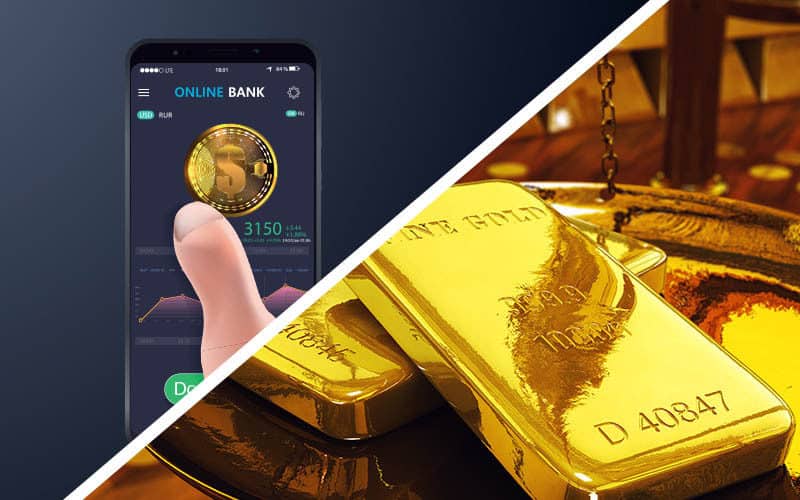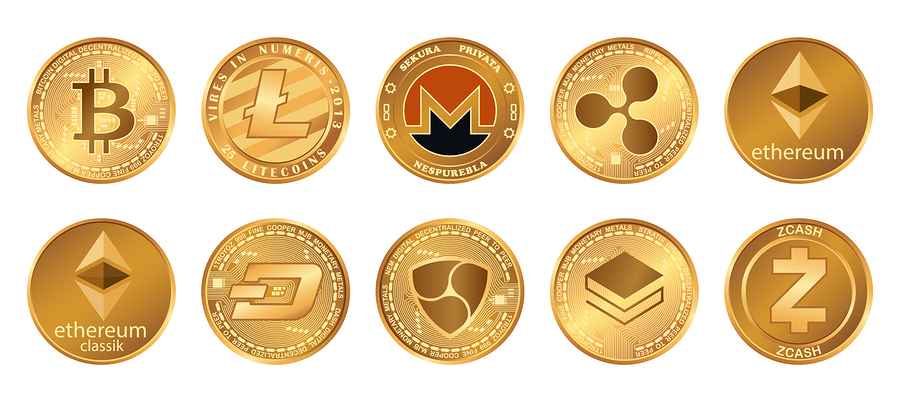Jumping into the crypto world can feel like you’re entering a maze blindfolded. But here’s your map: a beginner’s guide to responsible crypto investing that’s both clear and practical. Get the lowdown on all things crypto and blockchain, ensuring you start off with the best chances for your digital dollar. You’ll learn how to navigate the crucial steps of setting up secure wallets and deciphering market trends. Building a balanced crypto portfolio is next, with pointers for managing risks like a pro. And we’ll even demystify the trickiest parts like regulations and taxes. So, buckle up! We’re about to embark on a savvy investment journey that’s guided by smarts, not just luck.
Understanding the Basics of Cryptocurrency and Blockchain
Digital Currency Basics: From Fiat to Crypto
Diving into crypto can be thrilling. Yet, it’s vital to grasp the basics first. What is a digital currency? It’s money in digital form, not paper or coins like dollars or euros. Turning fiat, or regular money, into crypto is the first step in joining the digital finance world. When you buy crypto, you swap your dollars for a digital asset—think of it as buying a piece of the future, that’s how exciting it is!
So, why do it? Well, crypto offers freedom. It’s not tied to one place or type of money. This means you can use it across borders without hefty fees or long waits. More and more shops are starting to accept it too. The key here is to start slow and learn.
Blockchain Technology Explained: The Backbone of Crypto
Now, let’s chat about blockchain, the tech behind crypto. Picture a long chain of blocks. Each block is a bunch of transactions, locked together in a secure line. Once a block is full, it’s sealed off, and a new one starts. This unique system keeps your crypto safe. Everyone using the blockchain has a copy, so changing it is super hard. This means your digital cash is protected from hacks and fraud.
Blockchain is not just for money. It serves other cool tasks, like building smart contracts. These are agreements that live on the blockchain. What’s awesome is they don’t need a middle person. They run themselves once the rules you set are met.

If you’re ready to invest, first pick a trusted place to buy crypto. Set up a secure digital wallet, which is like a high-tech bank account for your crypto coins. Buying from a safe spot means less worry about scams. Remember, always do your homework. Read up and learn about where you’re putting your money. It pays off, believe me.
Cryptocurrency trading is not a game. It’s a serious business where being smart and calm wins the race. It means managing the highs and lows, keeping your cool when the market shakes.
All in all, understanding crypto and blockchain will gear you up for a smooth ride. Imagine buying, trading, and using digital cash with ease. It’s not just cool, it’s futuristic! And it’s not that hard, once you know the ropes. The world of digital money is yours for the taking. Go on, make your move wisely.
Setting Up for Success: Secure Practices and Market Analysis
Secure Digital Wallets: Your First Step to Crypto Investment
Let’s jump right into it. Your wallet is key to keeping your crypto safe. Think of a secure digital wallet as your personal vault. It’s not just a place to store your digital coins; it’s your first line of defense against thieves. Before you buy any crypto, get one set up. There are two types: ‘hot wallets’ online and ‘cold wallets’ that store offline.
Choose a cold wallet for big sums and a hot one for daily trades. Be sure to keep your private keys secret. These keys are like the password to your wallet. If someone gets them, they get your coins. And remember, once lost, it’s game over. Crypto is all about staying secure, so take this seriously. Double-check every link and email. Scammers often trick people into giving away keys.
Fundamental vs Technical Analysis Crypto: Making Informed Decisions
Now, let’s get smart about your investments. Knowing the market means making better choices. There are two main ways to study crypto markets: fundamental analysis and technical analysis. Fundamental analysis is about the big picture. It’s looking deep into what the crypto does, the team behind it, and how it fits into the market. It’s like picking a winning team based on their skills and game plan.
Technical analysis, on the other hand, is more like weather forecasting. It’s all about charts and patterns. This tells you when might be a good time to buy or sell. It’s not about the coin’s purpose but the trends in its price.

Use both to make wise choices. Research is how you spot the winners. Read up on investment research techniques. Never rush. Every savvy investor knows knowledge beats luck every time.
Crypto investing for beginners comes with a learning curve, but it’s exciting. Like a puzzle, once you start fitting the pieces together – from understanding cryptocurrency to analyzing crypto markets – you’ll get a picture of where you should put your money.
Remember, digital currency basics are the building blocks. To stay safe, always learn the ropes of secure digital wallets and smart investment choices. And beyond the thrill of trading, grasp the essentials of blockchain technology. This knowledge shapes every crypto move you’ll make.
So, start with a strong wallet, do your homework, and keep those scams at bay. Success in crypto doesn’t just happen – it’s built on smart, secure steps!
Building and Managing Your Crypto Portfolio
Crypto Portfolio Diversification: Balancing Your Digital Assets
When starting out with crypto, keep your mix of coins wide. Just like you wouldn’t put all your eggs in one basket, you shouldn’t put all your money into one kind of digital coin. This is what we call “crypto portfolio diversification.” Think of your investments as a team, where each player has a unique role. Some coins might be steady and reliable, like Bitcoin or Ethereum, while others might be new and exciting. A balance could lower your risk and could lead to a better payoff in the long run.
Make sure you understand each digital asset before investing. Do your homework. It’s not just about knowing the name, but what the coin does, how it fits in the market, and its growth potential. Diversification isn’t just piling up different coins; it’s about making smart choices based on research and understanding.
Managing Crypto Risks: Techniques for a Safer Investment Journey
Every investment has risks, including crypto. But there are ways to manage these risks to keep your journey safer. First, never invest more than you can afford to lose. It might be tempting to go all in, hoping for a big win, but this is risky. Be smart with your money.
Learn about setting up a secure digital wallet. It’s not as hard as it seems, and it keeps your coins safe. Just like you wouldn’t leave your house keys lying around, you should keep your wallet’s private keys and public addresses secure.

Keep an eye on the market trends. Knowing when to buy and when to sell is key. This isn’t about guessing; use solid investment research techniques. Learn the fundamentals of analyzing crypto markets. It could help you spot good and bad deals.
You may hear about something called “decentralized finance” or “DeFi.” It’s a big word for something simple: financial services like loans or insurance that don’t need banks or brokers, just technology. It can be riskier, so learn as much as you can about DeFi before you dive in.
Lastly, don’t forget about the real-world stuff. Like taxes. Yes, virtual currencies and taxes are a thing. Make sure you understand what you need to do so you don’t get caught off guard by a tax bill.
Remember, the key to responsible investing is being informed, cautious, and mindful of the risks. Keep learning, stay safe, and make your crypto journey a smart one.
Advanced Considerations: Regulation, Taxation, and Ethical Investing
Virtual Currencies and Taxes: Navigating Financial Obligations
Do you need to pay taxes on crypto? Yes, in many places, you must. Taxes can feel like a maze. But fear not! You can learn to find your way.
First, know that each trade, sale, or crypto use can be a tax event. When you sell crypto and make money, that’s a gain. You report gains to the tax folks. If you spent more than you got back, that’s a loss. It may lower your tax bill. Keep all records of your crypto activity.
Many countries expect you to report crypto like stocks or bonds. On your tax form, you write down your crypto gains or losses. It’s key to track every transaction. Use software made for crypto taxes to help you. The better your records, the easier tax time is.
Staying on top of these rules is smart. You avoid stress and penalties. Remember to check if rules change. New laws can pop up anytime. Don’t hesitate to ask a tax pro for help.
Ethical Cryptocurrency Investment: Aligning with Core Values
What does it mean to make ethical crypto investments? It means thinking about what’s right.
Ethical investing is about the “good” your money can do. Does the crypto help the world? Does it match your own values? Think about this when choosing. It’s not just about profit.
Find projects with a mission. Maybe they help the planet. Or they aim to give people more financial control. See if the team behind the crypto acts fair and open. Ethical projects often share how they work and their goals.
Ask around, read a lot, and get to know the project. You want to feel proud of your investment. Plus, ethical projects can reduce risk. If a project cares about doing right, it might last longer. That’s good for your wallet too.

Investing the right way takes work. You need to dig deep and do your homework. But it pays off. Not just in cash, but in a better future for all.
To sum up, get to know the tax laws for crypto. Keep tidy records. Pick investments that make you feel good. And always learn as much as you can. You’ve got this!
We’ve covered a lot in this chat about crypto and blockchain. Starting with the basics, we learned how digital money like crypto came to be and how blockchain forms its backbone. Then we delved into how you can make safe investments and analyze the market, stressing the importance of secure wallets and savvy market reading for wise choices.
Next up, building a diverse crypto portfolio was our focus. This helps balance your assets and manage risk, keeping your investment journey on the safer side. Last, we talked about the serious stuff – regulations, taxes, and ethical investing in the crypto world. Making sure your investments align with your values and legal requirements is key.
My final thought? Dive into crypto with your eyes open. Use the tools and knowledge we’ve discussed, and always invest with care and responsibility. Here’s to making smart, informed, and safe crypto choices. Happy investing!
Q&A :
What Is Cryptocurrency and How Does It Work for Beginners?
Cryptocurrency is a digital or virtual currency that uses cryptography for secure financial transactions. It operates independently of a central bank and is distributed across a vast network of computers that manage and record transactions. For beginners, it’s essential to understand that most cryptocurrencies are based on blockchain technology, which ensures transparency and prevents fraud by being tamper-resistant.
How Can I Start Investing in Cryptocurrency Responsibly?
To start investing responsibly in cryptocurrency, you need to:
- Educate yourself about different cryptocurrencies, how they work, and their market trends.
- Start small and only invest what you can afford to lose.
- Choose a reputable exchange or platform.
- Be cautious of market volatility and avoid making impulsive decisions based on short-term fluctuations.
What Should I Look for in a Cryptocurrency Investment as a Beginner?
As a beginner, you should look for:
- Credibility and longevity of the cryptocurrency.
- Active and transparent development team.
- Strong community and network effect.
- Real-world use cases and technology behind the coin.
- Market cap and liquidity to ensure you can buy and sell when needed.
Are There Any Specific Strategies for Beginners Investing in Crypto?
Yes, beginners should adhere to specific strategies, such as:
- Diversification to spread risk across various assets.
- Long-term holding (HODLing) to potentially outlast market volatility.
- Regularly reviewing and rebalancing your portfolio.
- Using dollar-cost averaging to buy cryptocurrencies at regular intervals.
How Can I Safeguard My Investment in Cryptocurrency?
To safeguard your investment:
- Use secure wallets, preferably hardware wallets, for substantial holdings.
- Enable two-factor authentication (2FA) on all related accounts.
- Be wary of phishing attempts and never share private keys.
- Stay updated with the latest security practices in the crypto space.
- Regularly back up your key information in a secure environment.


